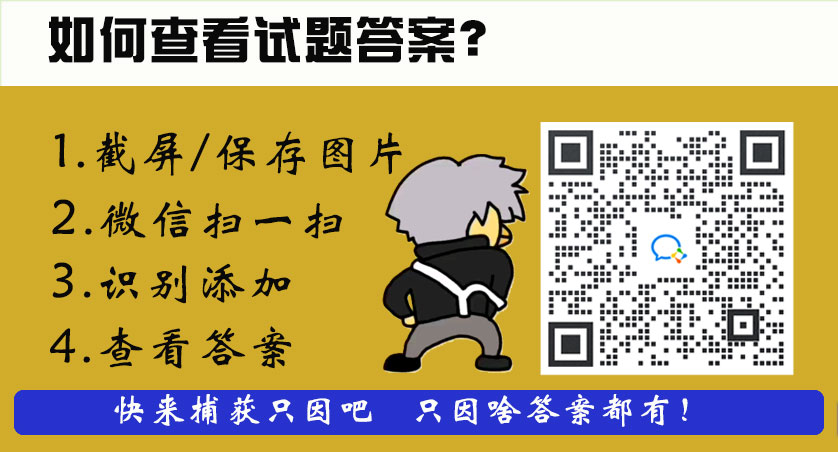八年级新目标英语周报第四期答案,我们目前整理分享关于八年级新目标英语周报第四期答案及其参考答案,2如需答案 请关注微信公众号:考不凡/直接访问www.kaobufan.com(考不凡)

1、八年级新目标英语周报第四期答案
2、高二新教材英语周报免费答案站
3、英语周报2022-2023选择性必修2
20.Not having completed(not complete) the program,they have to stay there for another two weeks. 试题答案
分析 没有完成这个项目,他们只好在那里再呆两个星期.
解答 答案是Not having completed.本题考查分词做状语;逗号后面是完整的句子,句中不存在并列连词或引导从句的引导词,所以判断not complete必须要非谓语的形式;本题中需要的是分词做状语;分词做状语时分词的选择是看分词和句子主语之间的关系:分词和句子主语之间是主谓关系(主动关系),用现在分词;分词和句子主语之间是动宾关系(被动关系),用过去分词;题干中not complete和主语they之间是主动关系,所以用现在分词;此外分词完成式表示分词的动作在谓语动词之前已经发生或完成,相当于after引导的时间状语从句;本句中指没有完成项目之后,才不得不再待两个星期;所以用现在分词完成式;非谓语动词的否定式在非谓语前直接加not;故答案用Not having completed.
点评 本题是要求用所给动词的适当形式填空,解题时首先考虑句中需要的是谓语动词还是非谓语动词;其次,如果是谓语动词关注时态、语态和数的变化;如果是非谓语动词要联系非谓语的基本用法判断非谓语的形式.
阅读下面短文,从短文后各题所给的四个选项(A、B, C和D)中,选出可以填入空白处的最佳选项,并在答题卡上将该项涂黑。
In the depths of my memory, many things I did with my father still live. These things have come to represent, in fact, what I call and love.
I don’t remember my father ever getting into a swimming pool. But he did the water. Any kind of ride seemed to give him pleasure. he loved to fish; sometimes he took me along.
But I never really liked being on the water, the way my father did. I liked being the water, moving through it, it all around me. I was not a strong , or one who learned to swim early, for I had my . But I loved being in the swimming pool close to my fathers’ office and those summer days with my father, who come by on a break. I needed him to see what I could do. My father would stand there in his suit, the person not in swimsuit.
After swimming, I would go his office and sit on the wooden chair in front of his big desk, where he let me anything I found in his top desk drawer. Sometimes, if I was left alone at his desk he worked in the lab, an assistant or a student might come in and tell me perhaps I shouldn’t be playing with his . But my father always and said easily, “Oh, no, it’s .” Sometimes he handed me coins and told me to get an ice cream...
A poet once said, “We look at life once, in childhood; the rest is .”And I think it is not only what we “look at once, in childhood” that determines our memories, but , in that childhood, looks at us.
1.A. desire B. joy C. anger D. worry
2.A. avoid B. refuse C. praise D. love
3.A. boat B. bus C. train D. bike
4.A. But B. Then C. And D. Still
5.A. on B. off C. by D. in
6.A. having B. leaving C. making D. getting
7.A. swimmer B. rider C. walker D. runner
8.A. hopes B. faiths C. rights D. fears
9.A. spending B. saving C. wasting D. ruining
10.A. should B. would C. had to D. ought to
11.A. next B. only C. other D. last
12.A. away from B. out of C. by D. inside
13.A. put up B. break down C. play with D. work out
14.A. the moment B. the first time C. while D. before
15.A. fishing net B. office things C. wooden chair D. lab equipment
16.A. stood up B. set out C. showed up D. turned out
17.A. fine B. strange C. terrible D. funny
18.A. the student B. the assistant C. myself D. himself
19.A. memory B. wealth C. experience D. practice
20.A. which B. who C. what D. whose